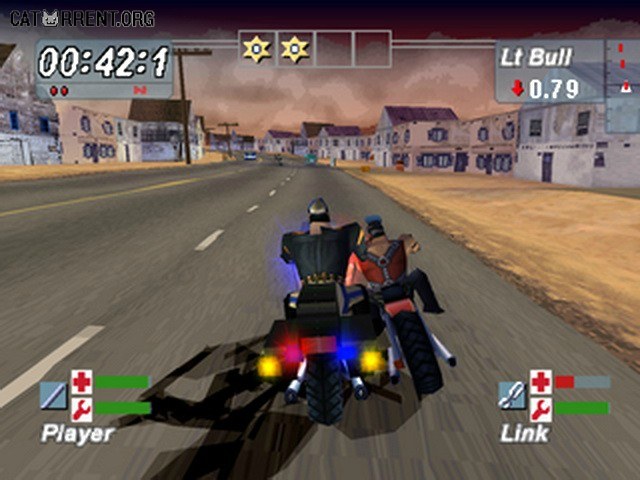
Rush made a conscious effort to exclude Danniels from the writing and recording sessions, and only played the album to him when it was finished. The album was written in approximately six months, with "Overture" being the final piece developed. Marie, Ontario in front of their opening act Mendelson Joe. Lifeson recalled developing "The Temples of Syrinx" backstage at a gig in Sault Ste. They focused on writing music with little need for overdubbing, as they wished to recreate it on stage as much as possible.
#Road rash jailbreak desades members portable
Most of it was performed on acoustic guitars with the exception of some electric guitar passages with a portable Pignose practice amplifier. As Peart started to write lyrics, Lee and Lifeson would write music that complemented the mood of what Peart was writing about. Rush began to put down musical ideas for 2112 in backstage dressing rooms, hotel rooms and in their touring van during the Caress of Steel tour. We fully intended to go down in flames but we were prepared to do that." Production Writing and recording Lifeson said, "I remember having these conversations about, 'What are we going to do? Are we going to try to make another mini- Led Zeppelin record or are we going to do what we are going to do and continue forward and whatever happens, happens?'. Despite pressure from the label and management to make a more commercial record, the band ignored the advice and proceeded with material as they saw fit. Rush manager Ray Danniels flew to the label's head offices in Chicago to try to regain confidence and spoke highly of the band's new ideas for a new album without having heard any of it. The band's international label, Mercury Records, considered dropping them. We were so confused and disheartened." In 1980, Lifeson said this was the only moment in Rush history when he felt close to giving up. Lee added, "That really shakes your confidence. Lee said the band could not understand the underwhelming response, and later dubbed the tour the "Down the Tubes Tour" as the band members struggled to meet their $125-a-week salary while crowds declined. The progressive rock-themed album with lengthy, story-based songs, complex song structures, and hard-to-grasp lyrics, made it difficult to receive radio airplay and promote effectively. The band members had enjoyed writing and recording the album, but Lifeson recalled the group in a state of confusion after the tour, sensing the disappointing reaction from crowds after playing songs from it on stage. In January 1976, Rush ended its 1975–1976 tour to support the band's third studio album, Caress of Steel. 2112 has been reissued several times a 40th Anniversary Edition was released in 2016 with previously unreleased material, including the album performed by artists including Dave Grohl, Taylor Hawkins, Billy Talent, Steven Wilson, and Alice in Chains. It is listed in 1001 Albums You Must Hear Before You Die, and ranked second on Rolling Stone 's reader's poll, Your Favorite Prog Rock Albums of All Time. 2112 remains the band's second-highest-selling album (behind 1981's Moving Pictures) with more than 3 million copies sold in the United States. Rush supported the album with a tour of the United States, Canada, and for the first time, Europe, from February 1976 to June 1977. 61 on the US Billboard Top LPs & Tape and was the band's commercial breakthrough in the country. There are five individual tracks on side two.Ģ112 was released to favourable reviews from music critics and quickly outsold the band's previous albums. Its centerpiece is the 20-minute title track, a futuristic science-fiction song that takes up the entire first side of the album. 2112 was recorded in February 1976 in Toronto with regular producer Terry Brown.

Though the label demanded more commercial material, the band decided to continue developing its progressive rock sound. The band's international label, Mercury Records, considered dropping Rush but granted the band one more album following negotiations with manager Ray Danniels.

The band was in financial hardship due to the album's disappointing sales, unfavourable critical reception, and a decline in attendance at its shows. Rush finished touring for their unsuccessful previous album Caress of Steel in early 1976. 2112 (pronounced "twenty-one twelve") is the fourth studio album by Canadian rock band Rush, released on 1 April 1976 (or March 1976, according to some sources) by Anthem Records.


 0 kommentar(er)
0 kommentar(er)
